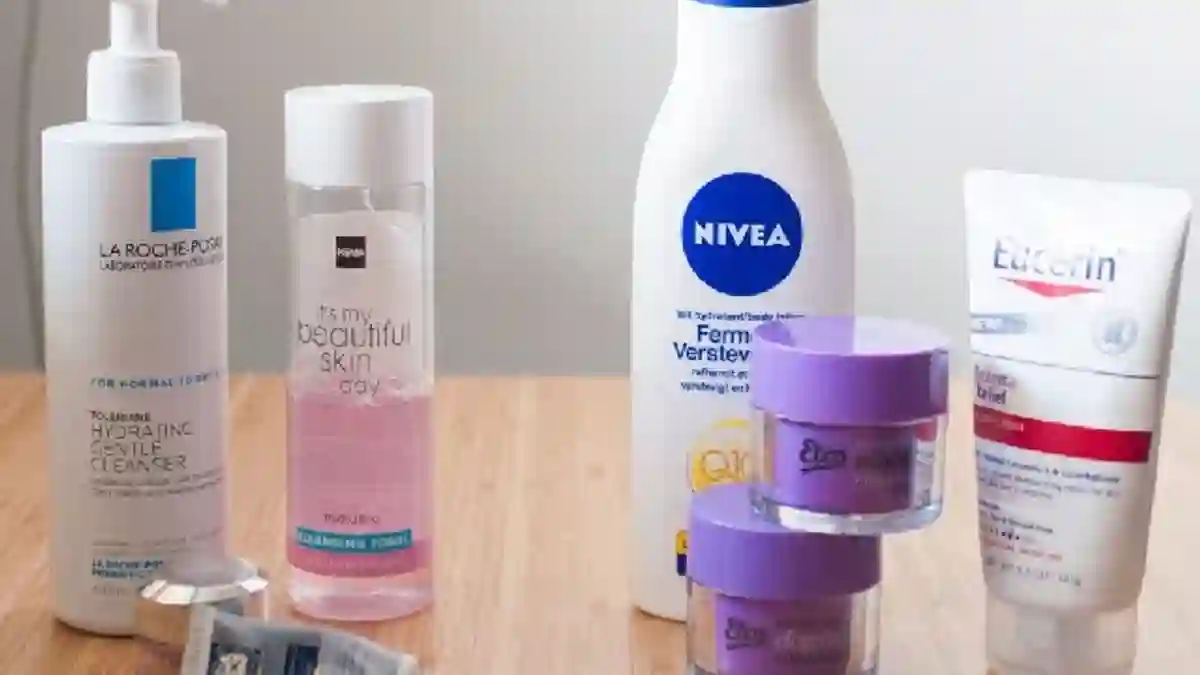Health
Wellhealthorganic – Winter Skin Care Tips Home Remedies to Keep Your Skin Moisturised

The winter season can cause your skin to get dry and flaky. The cold air, indoor heat and chilly wind strip your skin of its natural moisture barrier. Read more wellhealthorganic.com:winter-skin-care-tips-home-remedies-to-keep-your-skin-moisturised
This is why it’s crucial to keep your skin hydrated. Follow these home remedies to keep your skin soft, supple and glowing in winter.
1. Apply Honey
Winter isn’t just the time to snuggle in a cozy sweater and drink hot cocoa—it’s also one of the worst times for your skin. The colder weather and low humidity can strip your skin of moisture, making it prone to dryness, itchiness, and irritation.
To avoid this, a dermatologist suggests swapping your usual lighter moisturizers for richer formulas and going easy on exfoliation. She also suggests using a hydrating cleanser that doesn’t strip the skin of its natural barrier.
Honey is known for its moisturizing properties and can help keep the skin hydrated by retaining water. This ingredient is also a natural antioxidant and can help fade scars.
The best type of honey for skincare is raw, unpasteurized. This helps keep the enzymatic component intact, and it’s a better option for acne-prone or sensitive skin.
Applying honey to your skin as a face mask can do wonders for your complexion. It can reduce inflammation, soothe redness and irritated skin, and even heal breakouts.
This ingredient can be applied to all skin types, but it’s particularly beneficial for dry or sensitive skin as it is a natural humectant and keeps the skin hydrated.
Another benefit of applying honey to your skin is that it can help prevent clogged pores. This can lead to a decrease in the risk of breakouts and prevents blackheads from occurring.
However, it’s important to use only the right type of honey if you want to reap these benefits, since the wrong kind could increase your chances of acne or other skin problems. It’s best to go for completely raw honey, which appears chunky or crystallised with bits of wax, pollen and propolis instead of being pasteurized.
2. Apply Aloe Vera
Aloe vera is one of the best natural ingredients that you can use for a glowing, healthy skin. It is rich in antioxidants, Vitamin C and E, and beta-carotene. It is also antimicrobial and anti-inflammatory. It helps eradicate skin blemishes and reduces age lines. It also increases the production of collagen and elasticity in your skin.
You can apply it to your skin using a simple face mask recipe or use it as an ingredient in skincare products. However, before you start applying it to your skin, it is important to do a patch test.
If you are using aloe vera gel to treat a certain condition, you should always talk with your doctor first. This is because some people are allergic to the plant itself and have sensitive skin that can react negatively to aloe.
But if you want to try this natural wonder, make sure you buy a high-quality product that contains pure aloe. Look for a product that says “100 percent pure aloe vera” or “99 percent aloe.”
A lot of drugstore and high-end skin care brands use aloe in their formulations, but not all are made with pure aloe. Some of them may contain alcohol, fragrance, or other chemicals to extend the shelf life.
Some of these chemicals are harmful to your health, so it is important to avoid them at all costs. You should also check the ingredients list of a product before buying it.
If you are looking for a natural solution to dry, flaky skin this winter, try aloe vera gel. It is an effective and safe alternative to other moisturizers and will leave your skin feeling fresh and smooth.
3. Apply Coconut Oil
When it comes to winter, it’s time to change up your skin care regimen. Those lightweight gel moisturizers that worked perfectly in September might be too light for winter, which can strip your skin of the essential oils it needs to function properly.
That’s why board-certified dermatologist Rachel Nazarian, MD recommends swapping out your usual lighter creams for richer formulas containing humectants and emollients that draw in moisture and lock it in. Those include products with ceramides, hyaluronic acid and hydration serums.
It’s also important to use non-comedogenic cleansers and moisturizers, since harsh cleaners can remove essential oils that help keep your skin hydrated. Look for hydrating cleansers like CeraVe Hydrating Cleanser, BMD Gentle Cleanser and LaRoche Posay Toleraine Hydrating Cleanser, which won’t strip your skin of its natural oils.
Coconut oil, which is rich in fatty acids, can help soothe dry, itchy skin by restoring the skin’s moisture barrier and providing antioxidant protection. It can also reduce inflammation and redness, and can help heal minor skin wounds.
As a body oil, it can be applied directly to the skin and left to soak in. It can also be used to nourish hair, particularly if it’s getting dry and brittle. It works especially well as a leave-on hair mask and can be massaged into the scalp for a deep conditioning treatment, says Dr. Zeichner, who also suggests using it as a makeup remover to break down waterproof formulas.
Coconut oil has antimicrobial properties, meaning it can kill bacteria and help with healing bacterial infections like acne, eczema, cellulitis and folliculitis. It’s made up of three fatty acids — capric, caprylic and lauric acid — and is rich in antimicrobial antioxidants, including vitamin E.
4. Apply Olive Oil
The skin is particularly prone to dehydration during winter due to the dryness of the air, and it’s important to keep your skin well-hydrated. The best way to do this is by applying an oil-based moisturizer after every bath or shower, or use a humidifier at home to help maintain the moisture level in your home (3).
Olive oil, which is extracted from the fruit of the olive tree, is a great source of omega-9 fatty acids that can protect against premature skin aging and reduce sun damage. It also contains antioxidants that can fight against free radicals.
You can apply olive oil directly to your skin, or you can buy products that contain olive oil infused into them. However, it is best to stick with natural extra virgin olive oil to reap all the benefits of this amazing ingredient.
Before using olive oil on your face, it is a good idea to do a sensitivity test to ensure that your skin won’t react negatively to the product. You can do this by applying a small amount of the oil to your forearm and watching for any reaction or rash.
A word of caution, though: olive oil is a very comedogenic oil and may clog pores or trap bacteria. If you are prone to acne, this could be an issue.
Alternatively, you can try double cleansing by using an oil cleanser to get rid of the excess oils before using a water-based cleanser for the rest of your routine. This method can also help avoid any stripping effects that might be caused by using a foaming cleanser or another harsh ingredient, according to Jessica Plug, skincare expert and co-founder of Jessica’s Skin.
5. Apply Jojoba Oil
Jojoba oil is an excellent moisturizer and helps keep your skin supple. It is a natural emollient, so it is safe for all skin types (including dry skin) and won’t clog your pores. It also has antioxidants that help prevent premature ageing and fade fine lines and wrinkles.
Applying jojoba oil is easy, and it will leave your skin feeling soft and smooth. It’s recommended to use it twice a day after cleansing and toning your skin. It is also a great addition to your hair routine, especially for treating dry and brittle hair.
In addition to its moisturizing properties, jojoba oil is anti-microbial and helps prevent hair loss. It’s also beneficial for nails, as it helps strengthen and soften cuticles, keeping them healthy and strong.
It also helps treat a number of common skin conditions, including acne, psoriasis and eczema. Because it’s non-comedogenic, it won’t clog your pores, so it’s ideal for sensitive complexions.
Jojoba oil can also be used to soothe itchy feet and to combat athlete’s foot, which is caused by fungus. It is a natural fungicide, so it helps kill bacteria that cause this condition.
The combination of vitamin E and iodine in jojoba oil can soothe eczema and reduce inflammation. It also has anti-bacterial properties that help to fight off bacteria that causes infections, like ringworm and athlete’s foot.
It is best to choose jojoba oil that is cold-pressed and organic and unrefined. This will ensure that the product is pure and doesn’t contain any harmful chemicals or additives. It’s also important to choose a high-quality brand to ensure that you get the most benefits from your purchase.
Related posts:


Forex & Crypto
5 Best Ways to Earn Crypto While You Sleep in 2025
Categories
- Apps (1)
- Automotive (23)
- Beauty (7)
- Business (122)
- Celebrities (2)
- Digital Marketing (21)
- Ecommerce (2)
- Education (22)
- Entertainment (39)
- Events (6)
- Fashion (1)
- Features (4)
- Finance (1)
- Fitness (10)
- Food (2)
- Forex & Crypto (23)
- General (116)
- Health (48)
- House (61)
- Lifestyle (57)
- Marketing (8)
- Parenting (3)
- Pets (10)
- Real Estate (8)
- Safety and Security (14)
- Social Media (31)
- Sports (142)
- Technology (73)
- Travel (23)






















